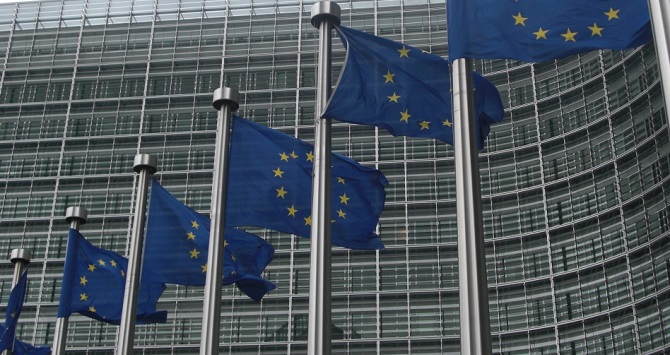 The fifth annual European Summit on the Future Internet is coming up on 12& 13 June bringing together policymakers, industry representatives and scholars. Joao Schwarz da Silva of this year’s host, the University of Luxembourg, gives a sneak preview of the discussion pointing out what is at stake and calling for international legal safeguards in internet governance.
The fifth annual European Summit on the Future Internet is coming up on 12& 13 June bringing together policymakers, industry representatives and scholars. Joao Schwarz da Silva of this year’s host, the University of Luxembourg, gives a sneak preview of the discussion pointing out what is at stake and calling for international legal safeguards in internet governance.
Discussion on the future shape of the Internet has been raging for some years now. Issues debated have included net neutrality, the “Internet of things”, trust and privacy in the online world, freedom of expression, government control, the right to be forgotten and governance of personal data, and the list does not stop there. In Europe legislation is in the works at Union and national levels addressing these issues with net neutrality and data protection proving highly contentious, and European courts have recently weighed in against industry on the right to be forgotten.
The end of utopia?
Many claim we have reached the end of the digital utopia, that the collaborative Internet is dead and that we can never return to the self-regulation of the happy Internet pioneer days. They ask why people have accepted to be locked up in social network environments that deprive them of any control over their most critical personal data. Pessimists see that our ability to protect ourselves from intrusions into our private lives is almost non-existent. They observe that we have become the cash cows of search engines and advertising agencies.
Sure, there are a number of formidable giants on today’s net who control a huge share of the electronic space. These companies have gigantic computing facilities and the financial power to lobby for even greater control. But their future in this Internet space is far from guaranteed. In the Internet world, new market entrants tend to scale up at much lower costs than traditional incumbents. Numerous examples prove this assertion, the latest being companies such as Uber, one of the digital competitors to traditional taxi companies.
As we just voted in the elections for European Parliament, we are made aware by multiple Internet channels of the devastating consequences that would result from adoption of the Transatlantic Trade and Investment Partnership Agreement between the United States and the European Union. Democratic pressures being exerted on the future members of Parliament and the increasing public awareness of the work of secret lobbies has created an immense clamor against TTIP. Would such a development ever have been possible in the old, pre-Internet world?

photo by Blaise Alleyne CC BY 2.0
A new generation of policymakers and regulators
Have we collectively failed to address critical Internet governance issues and have the privacy of citizens and the security of states been compromised? Yes – in a certain way, for the very simple reason that most regulatory bodies have in the past been populated by experts of the pre-Internet world. They could not conceive of a world that would change so rapidly and, as such, failed to react in time to the brutal developments as they took place. Technology has always been ahead of the regulatory framework. Internet time is measured on a different scale from regulations.
But now a new generation of politicians and regulators well-versed in the Internet are progressively coming to power. Awareness of potential attacks on democracy and on freedom of expression is rising. Cyber-criminality and fiscal evasion are being confronted. The excessive market dominance of some major Internet players is well perceived these days. Today’s regulators do react in a timely manner to the challenges posed by Internet technologies and its usages. A utopian dream seems to prevail, that the right fix to any deviation from openness and fairness on the Internet will always come forward before the damage becomes too great.
Constant change
But the Internet is in a constant and extremely rapid state of change. Today, we can already count some 3 billion people who use the Internet, but the growth rate of Internet-connected devices outpaces that of the global population. In the not-so-distant future, the Internet as we know it today will grow exponentially and become fully pervasive, reaching out to all human activities. Connectivity and intelligence will be woven into the world around us to an extent that defies the imagination.
Will we then have the common capability and the willingness to accept a downgrading of our democratic values simply for the sake of greater administrative efficiency, or to ensure a greater competitive advantage to a few major corporations? Will we, with the support of our Governments and legislators, be able to protect and secure our fundamental democratic and civic values?
The need for international safeguards and principles
There is indeed a rising problem: that of the converged interests of Internet companies and of government agencies in the collection of user data. An algorithm-driven policymaking approach is in the making, where information-rich democracies wish to solve public problems without having to explain or justify themselves to citizens. The objective is to turn consumer data into actionable intelligence, thereby helping businesses to better respond to the future needs of individual customers. They simply collect enough data about their citizens’ “way of life and work” and develop the perfect analytical tools allowing them to engineer the most efficient “software based” responses to business growth and societal problems.
As a conclusion one can say that today governance of the Internet is at the heart of citizens’ concerns and, as such, calls for some form of international governance. Our need is for an internationally regulated cyberspace that can protect the interests of citizens and institutions, where commercial profits and public benefits are properly balanced.
Adequate legal safeguards must accompany such governance principles, based on the values of the information democracies and guaranteeing their sovereignty, economic stability and the participation of citizens in the policymaking processes. To do otherwise is to accept rules that may vary from country to country and which will quite naturally result in the creation of online safe havens for the elite, where the right to an online life without arbitrary and unwarranted interferences, intrusions or limitations would be unthinkable for the citizen.
The Internet awareness of citizens will no doubt grow and, as it does, the days of accepting rules that fly in the face of traditional open and transparent democratic political processes will come to an end.
The European Summit on the Future Internet will take place from 12-13 June in Luxembourg at the European Commission’s Jean Monett building and hosted by the University of Luxembourg’s Interdisciplinary Centre for Security, Reliability and Trust (SnT). This article gives the views of the author, and does not represent the position of the LSE Media Policy Project blog, nor of the London School of Economics.





